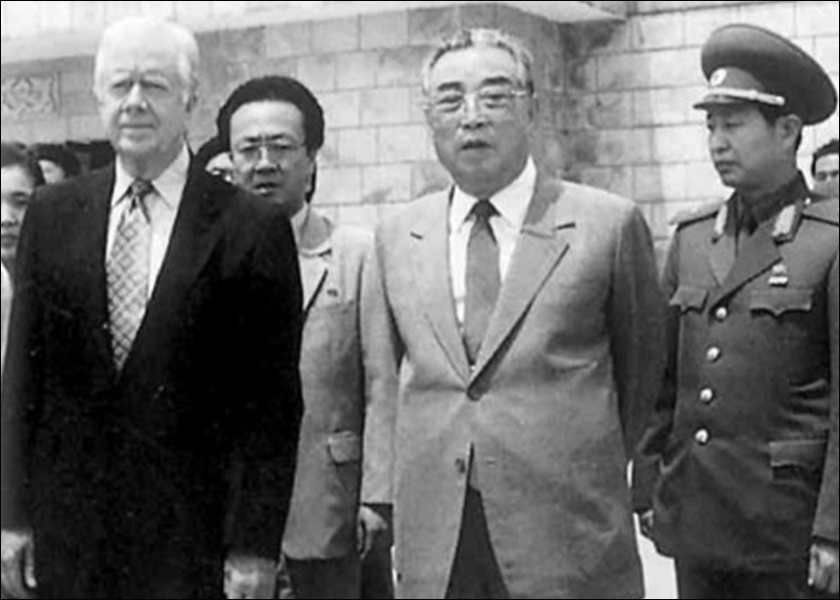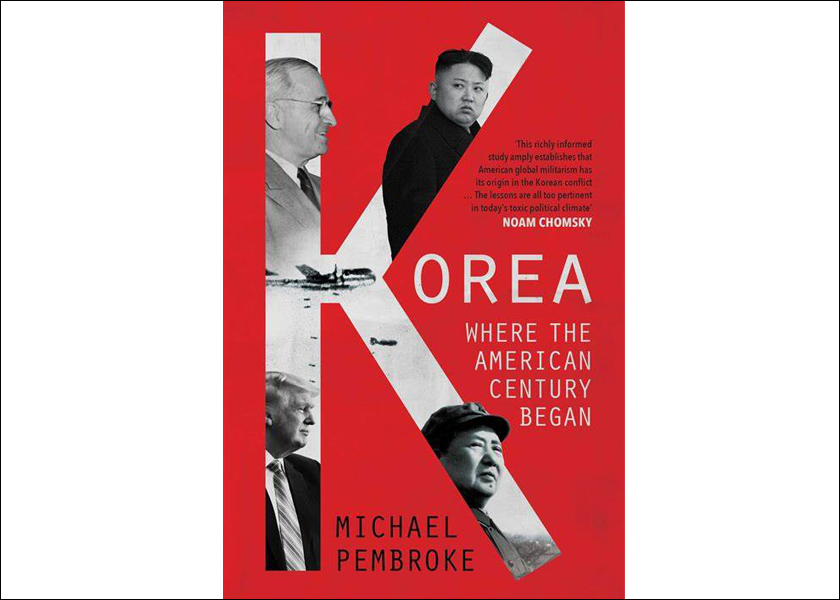Ever the peacemaker, he met with Il Sung Kim in 1994 and helped freeze Pyongyang’s nuclear weapons program for over a decade | By Christine Ahn (Spring 2023)

As the world reflects on the legacy of President Jimmy Carter, it’s important to remember the place where he may have left one of his greatest post-presidency marks — the Korean Peninsula.
Not only was Carter instrumental in preventing a U.S. attack on North Korea that could have been a second Korean War, he also was an advocate for replacing the 1953 ceasefire with a peace agreement to formally end the Korean War. Now, Carter’s legacy can provide the Biden administration with crucial insight of how to move forward with North Korea, especially as Pyongyang has become a de facto nuclear power.
To Korea watchers, President Carter’s legacy on Korea is mixed. While in office, he made a tragic error in quashing the democratic uprising in Gwangju, South Korea, that claimed hundreds of lives. Tens of thousands of citizens took to the streets to protest martial law following a military coup. On May 22, 1980, Carter’s national security team gave the green light to Lieutenant General Doo-hwan Chun to use force against the student protests in Gwangju, the birthplace of South Korea’s democracy. Much of the South Korean populace who longed for democracy felt betrayed by a U.S. president who championed human rights diplomacy.
But after leaving the White House, Carter played an instrumental role in preventing a new Korean War. In September 1994, as President Clinton weighed a first-strike on North Korea’s nuclear reactor at Yongbyon, President Carter, flanked by a CNN camera crew, flew to Pyongyang to meet Il Sung Kim and outline the terms of the Agreed Framework, which succeeded in freezing North Korea’s nuclear weapons program for over a decade.
In his experience speaking with North Korean leaders, from Il Sung Kim to Jong Il Kim, Carter felt that he understood what North Korea wanted, as well as how the U.S. and North Korea could move forward on a path toward peace.
“All that the North Koreans have wanted is a peace agreement instead of a ceasefire and that we should help North Koreans access the outside world by ending our embargo,” he told me in November 2018, when we sat down together at the Carter Center in Atlanta. “They want basic peace with the United States and the ability to become part of a community of nations on an equal basis. I pray and hope that we work out an agreement and treat the North Koreans fairly.”
Carter pointed out the irony of how the U.S. had spent the last 70 years trying “to destroy the economy of North Korea” while working “to boost the economy of South Korea. And still, we condemn the North Koreans for not having a good economy.”
At that time in 2018, the two leaders of North Korea and South Korea, Jong-un Kim and Jae-in Moon , met three times — twice at Panmunjom and once in Pyongyang — where they signed two declarations committing to ending war on the Korean Peninsula and ushering in a new era of peace. But peacemaking between the two Koreas alone was not enough; the success of the inter-Korean peace process also rested on the U.S. establishing peace with the North.
Unfortunately, summit meetings between the two in 2018-2019 ended in failure. Now we’re seeing the consequences of that. This year has already witnessed dangerously high tensions on the peninsula: North Korea recently displayed enough ICBMs to overwhelm the U.S.’s missile defense system and Washington and Seoul are ramping up massive joint military exercises in response. And South Korea under a conservative President Seok-yeol Yoon is flirting with the idea of arming itself with nuclear weapons.
The backdrop to this endless cycle of provocations is the U.S.-China great power conflict, which has put the Korean Peninsula on its front line.
While the Biden administration’s North Korea envoy has said he is willing to meet with his North Korean counterparts “anywhere, anytime,” Pyongyang has largely ignored those offers, and it’s not hard to understand why. Many U.S. policymakers across the political spectrum continue to resist calls for a peace, arguing that signing a peace agreement with North Korea would grant the Kim regime the right to become a nuclear-weapons state. Hawkish Sen. Lindsey Graham has argued that a declaration of peace should only come “after [the North Koreans] give up their nukes.”
Even Joseph Yun, a moderate and former U.S. Envoy to North Korea, said, “[I]t would be a real mistake to have a peace treaty come first, then denuclearization, because that is clearly an open admission that you’re dealing with North Korea as an acknowledged nuclear weapons state.”
But a peace agreement would not necessarily recognize North Korea as a nuclear weapons state. As pointed out in the Korea Peace Now! report “Path to Peace,” a peace agreement wouldn’t change the terms of the Nuclear Nonproliferation Treaty, which only acknowledges a nuclear weapons state as one that manufactured or tested a weapon prior to January 1, 1967. (North Korea conducted its first nuclear weapons test in 2006.)
Plus, there are more compelling reasons why a peace agreement would help defuse tensions and halt the arms race. Stanford University professor and nuclear scientist Siegfried Hecker, who routinely inspected nuclear facilities in North Korea through the 1990s, said, “North Korea will not give up its weapons and weapons program until its security can be assured. Such assurance cannot be achieved simply by a U.S. promise/agreement on paper. It will require a substantial period of co-existence and interdependence.”
Former U.S. Ambassador to South Korea James Laney put it best when he said, “[a] peace treaty would provide a baseline for relationships, eliminating the question of the other’s legitimacy and its right to exist. Absent such a peace treaty, every dispute presents afresh the question of the other side’s legitimacy.”
A peace agreement is also supported by members of Congress. On March 1, Representative Brad Sherman will re-introduce the Peace on the Korean Peninsula Act, which was first introduced in 2021 and calls for formally ending the Korean War with a peace agreement.
As we approach the 70th anniversary of the signing of the Korean War Armistice, the Biden administration should take the lessons from his predecessor, Jimmy Carter, who made the most progress with North Korea to finally end the Korean War and usher in a new era of peace.
Originally published in Responsible Statecraft




